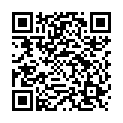|
|
|
| Module code: KIB-MAT3 |
|
|
2V+1U (3 hours per week) |
|
3 |
| Semester: 3 |
| Mandatory course: yes |
Language of instruction:
German |
Assessment:
Written exam
[updated 26.02.2018]
|
KIB-MAT3 (P222-0002) Computer Science and Communication Systems, Bachelor, ASPO 01.10.2021
, semester 3, mandatory course
KIB-MAT3 (P222-0002) Computer Science and Communication Systems, Bachelor, ASPO 01.10.2022
, semester 3, mandatory course
PRI-MAT3 (P222-0002) Production Informatics, Bachelor, SO 01.10.2023
, semester 3, mandatory course
PRI-MAT3 (P222-0002) Production Informatics, Bachelor, SO 01.10.2026
, semester 3, mandatory course
|
45 class hours (= 33.75 clock hours) over a 15-week period.
The total student study time is 90 hours (equivalent to 3 ECTS credits).
There are therefore 56.25 hours available for class preparation and follow-up work and exam preparation.
|
Recommended prerequisites (modules):
None.
|
Recommended as prerequisite for:
|
Module coordinator:
Prof. Dr. Peter Birkner |
Lecturer:
Dipl.-Math. Dimitri Ovrutskiy
Dipl.-Ing. Dirk Ammon
Dipl.-Math. Wolfgang Braun
[updated 24.01.2020]
|
Learning outcomes:
After successfully completing this course, students will be able to apply the Fourier transform to technical problems such as the analysis of linear filters. They will be able to understand problems related to the functions of several independent variables and to design solutions.
With the help of an introduction to probability calculus, they will be able to process and solve elementary combinatorial and probabilistic questions.
[updated 26.02.2018]
|
Module content:
Complex numbers (advanced)
Fourier series and Fourier transform
Definitions, properties, examples
Applications
Functions with several independent variables
n-dimensional space
Multivariate function
Differential calculus
Probability calculus
The concept of "probability"
Conditional probability and independent events
Urn experiments
Random variables and distribution functions
Expected value and variance
Discrete distribution, Poisson distribution, normal (or Gaussian) distribution
[updated 26.02.2018]
|
Recommended or required reading:
[still undocumented]
|
Module offered in:
WS 2022/23,
WS 2021/22,
WS 2020/21,
WS 2019/20,
WS 2018/19
|


